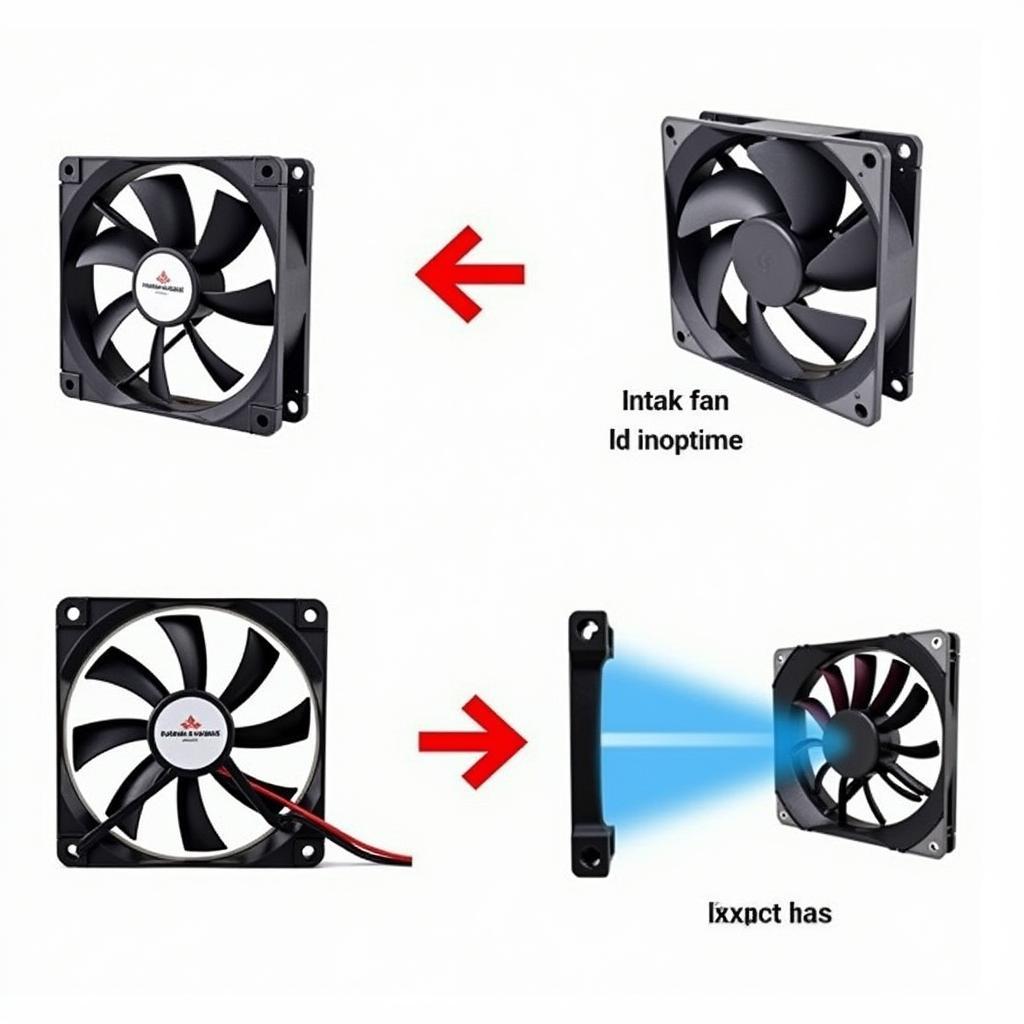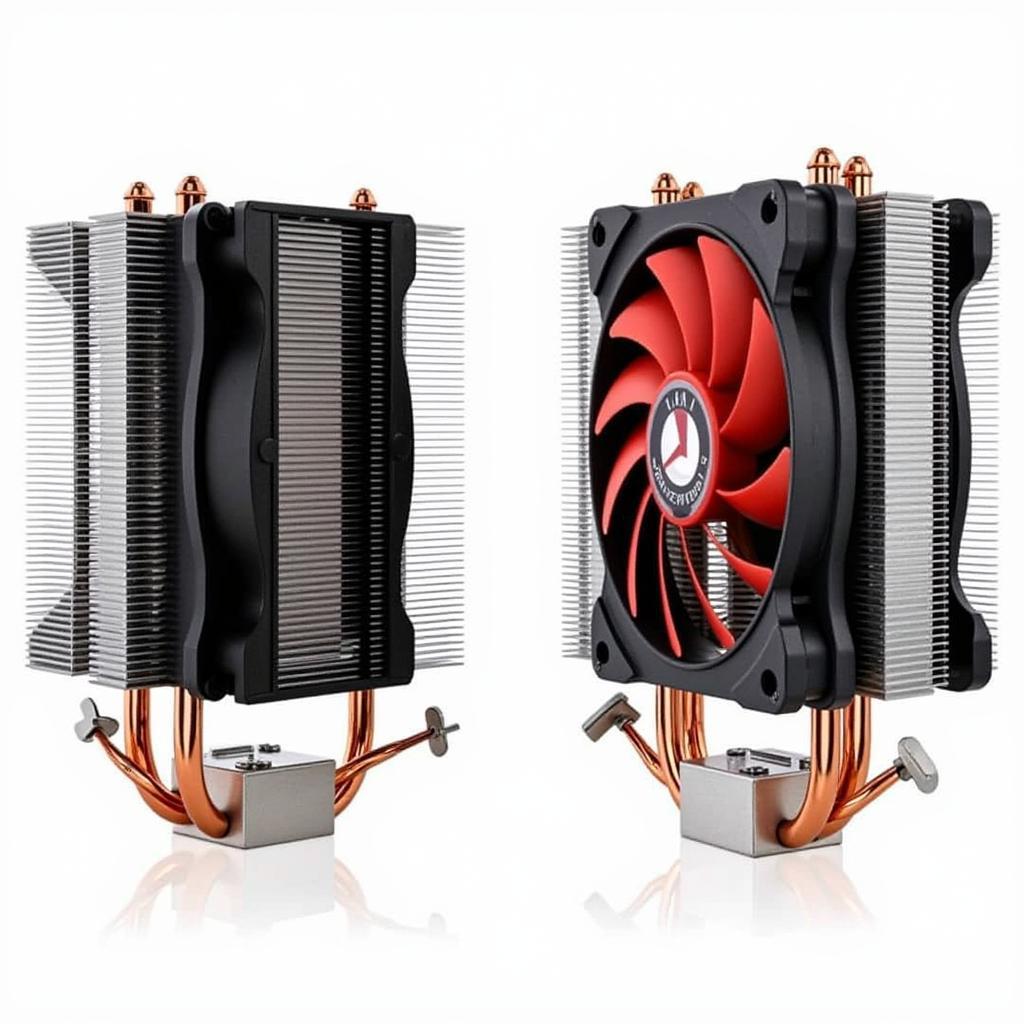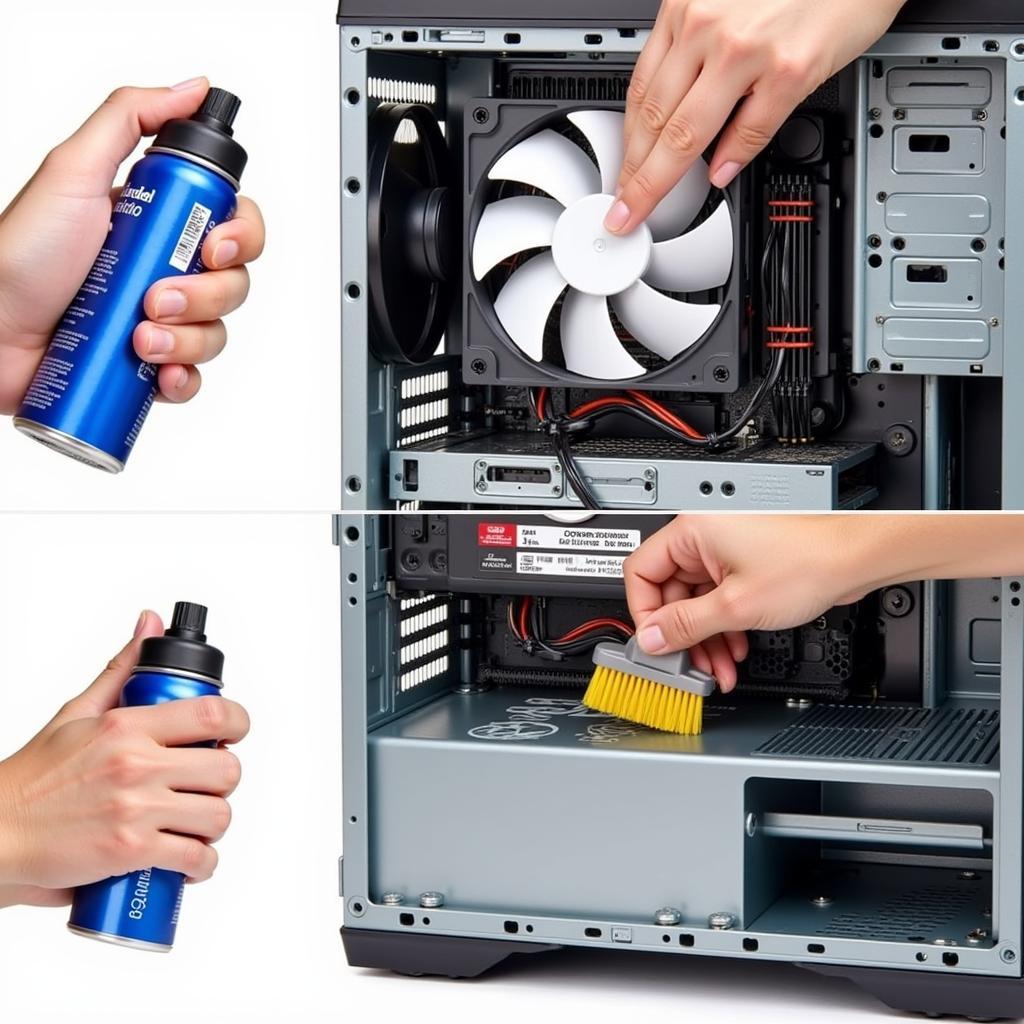“Don’t forget to turn off the fan though” – it’s a phrase most PC enthusiasts utter after a long gaming session, a reminder of the importance of cooling down our digital workhorses. But why is this seemingly simple act so crucial, and what other steps can you take to ensure your PC stays cool and performs at its peak? Let’s delve into the world of PC cooling, exploring everything from basic fan maintenance to advanced cooling solutions.
The Importance of Keeping Your Cool: Why PC Cooling Matters
Your computer generates heat, a natural byproduct of the tireless work performed by its components. While some heat is inevitable, excessive heat can lead to a myriad of problems, impacting both performance and longevity. Overheating can cause:
- Reduced Performance: When components overheat, they often throttle their performance to reduce heat output. This translates to slower processing speeds, lagging gameplay, and an overall sluggish system.
- System Instability: Overheating can lead to random crashes, freezes, and the dreaded blue screen of death (BSOD).
- Component Damage: Prolonged exposure to high temperatures can significantly shorten the lifespan of your components, potentially leading to costly repairs or replacements.
Basic Cooling Practices: The First Line of Defense
Before we dive into the specifics of fans, it’s essential to establish a solid foundation for optimal PC cooling:
- Proper Case Ventilation: A well-ventilated case allows hot air to escape and cool air to be drawn in. Ensure your case has adequate intake and exhaust fans to facilitate airflow.
- Cable Management: A tangled mess of cables can obstruct airflow within your case, trapping heat and hindering cooling efficiency. Take the time to neatly route and secure your cables.
- Cleanliness is Key: Dust accumulation acts as an insulator, trapping heat and reducing the effectiveness of your cooling system. Regularly clean your PC’s interior, paying special attention to fan blades and heatsinks.
The Role of Fans: Active Cooling for Optimal Performance
Fans are the workhorses of PC cooling, actively moving air to dissipate heat. They come in various shapes, sizes, and configurations, each with its own strengths and weaknesses.
Case Fans: Creating Airflow Harmony
Case fans are strategically placed within your computer case to create a constant flow of air. Intake fans draw cool air into the case, while exhaust fans expel hot air, creating a cycle that helps regulate internal temperatures. Consider these factors when choosing case fans:
- Size Matters: Case fans typically come in standard sizes, such as 120mm and 140mm. Ensure compatibility with your case and consider larger fans for quieter operation at lower speeds.
- Airflow vs. Static Pressure: Airflow, measured in cubic feet per minute (CFM), refers to the volume of air a fan can move. Static pressure, on the other hand, measures a fan’s ability to force air through resistance, such as heatsinks or filters. Choose fans based on your cooling needs – high airflow for general cooling or high static pressure for heatsinks.
 PC Case Fans
PC Case Fans
CPU Coolers: Taming the Processor’s Heat
Your CPU is the brain of your computer, and it generates a significant amount of heat, especially under heavy workloads. While all CPUs come with a stock cooler, upgrading to a more robust aftermarket cooler can significantly improve cooling performance.
- Air Coolers: Air coolers use heatsinks and fans to dissipate heat away from the CPU. They are generally affordable and easy to install.
- Liquid Coolers: Liquid coolers use a closed loop system to circulate coolant through a water block attached to the CPU. The heated coolant is then pumped to a radiator, where it is cooled by fans before being recirculated. Liquid coolers offer superior cooling performance, especially for overclocked CPUs, but come at a higher price point.
 CPU Air Cooler vs. Liquid Cooler
CPU Air Cooler vs. Liquid Cooler
Don’t Forget to Turn Off the Fan Though: A Word of Caution
While fans are crucial for maintaining optimal PC temperatures, it’s important to strike a balance between cooling and noise. Leaving your fans running at full speed constantly can generate unnecessary noise and potentially shorten their lifespan.
- Fan Curves and Control Software: Many motherboards and fan controllers offer software that allows you to adjust fan speeds based on temperature readings. Create custom fan curves that ramp up fan speeds as temperatures rise and slow them down when the system is idle.
Troubleshooting Common Cooling Issues: Keeping Your Cool When Things Heat Up
Even with a well-maintained cooling system, you may encounter occasional issues. Here are some common cooling problems and their potential solutions:
- Overheating CPU: Ensure the CPU cooler is properly installed and making good contact with the CPU. Check for dust buildup on the cooler’s heatsink and reapply thermal paste if needed. Consider upgrading to a more robust cooler if the problem persists.
- Loud Fans: Make sure fan blades are free of dust and debris. Check for any obstructions that might be hindering fan rotation. Adjust fan curves in your BIOS or fan control software to optimize noise levels.
- High GPU Temperatures: Ensure the graphics card is properly seated in its slot and receiving adequate airflow. Consider upgrading to a graphics card with a better cooling solution if temperatures remain high.
 Cleaning PC Fans
Cleaning PC Fans
Conclusion: Maintaining a Cool and Efficient System
“Don’t forget to turn off the fan though” serves as a reminder of the delicate balance between performance and cooling. By implementing the tips and techniques outlined in this guide, you can ensure your PC stays cool, quiet, and running at its best for years to come. Remember, a cool PC is a happy PC!
FAQs
Q: How often should I clean my PC?
A: It’s generally recommended to clean your PC every 3-6 months, depending on usage and environmental factors.
Q: Can I add more fans to my PC case?
A: Most PC cases offer multiple fan mounting points. Check your case’s specifications to determine the number and sizes of fans it can accommodate.
Q: Is it safe to use compressed air to clean my PC?
A: Yes, compressed air is a safe and effective way to remove dust from your PC. However, always hold the can upright and use short bursts of air to avoid damaging delicate components.
Q: What is thermal paste, and why is it important?
A: Thermal paste is a thermally conductive material that helps fill in microscopic imperfections between the CPU and the cooler, improving heat transfer.
Q: My PC is still overheating, even after trying these solutions. What should I do?
A: If you’re still experiencing overheating issues, it’s best to consult with a qualified PC technician to diagnose and resolve the problem.
Need further assistance with your PC cooling setup or have specific questions about your components? Contact us at Phone Number: 0903426737, Email: fansbongda@gmail.com, or visit our address at fan rgb xigmatek, Lot 9, Area 6, Gieng Day Ward, Ha Long City, Quang Ninh, Vietnam. Our team of experts is available 24/7 to provide personalized support and guidance.


